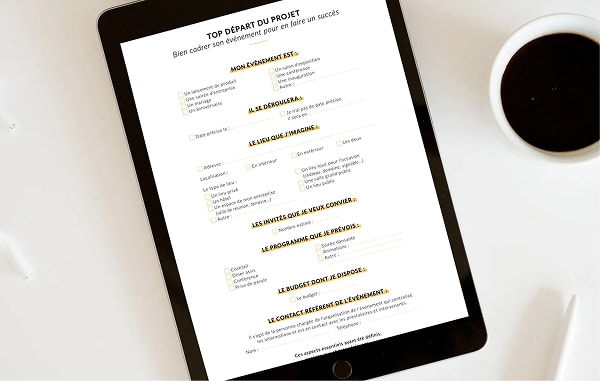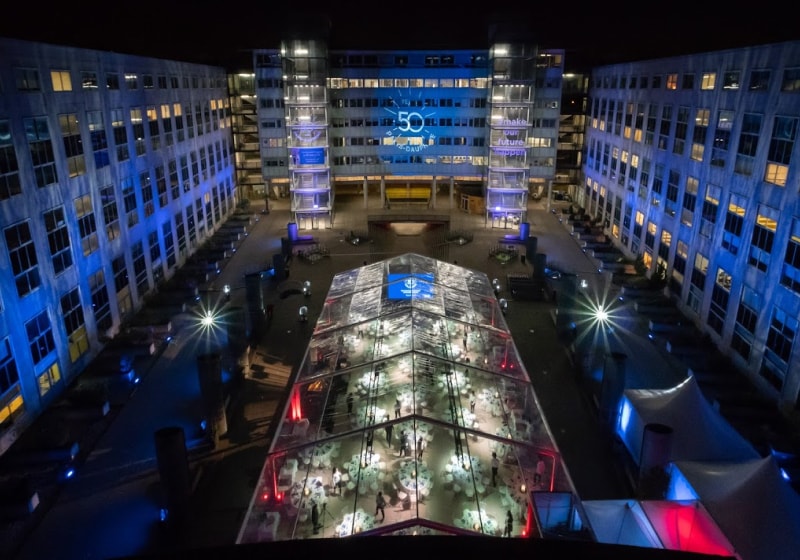In 2025, companies are rethinking their event formats to adapt to a more flexible, digital, and responsible work environment. In this context, the hybrid format — which combines physical experiences (seminars, conferences, team building, product launches...) with real-time online broadcasting has become essential. In this guide, discover why you should adopt this format, how to organize it step by step, and how to measure its impact.
Why choose a hybrid corporate event in 2025 ?
With the evolution of work practices, the rise of remote work, the challenges of carbon reduction, and the internationalization of teams, digital events have become powerful performance drivers. They meet new expectations in internal communication, employee engagement, and corporate event strategy.
Accessibility and flexibility: a format adapted to all constraints
The hybrid event allows you to reach a wider audience without geographic limitations. Lower travel, logistics, and accommodation costs mean optimized ROI. It’s particularly suited to multisite or international organizations.
Carbon footprint reduction: a benefit for your CSR strategy
Fewer trips, shared technical resources, reduced printing and waste: hybrid events are eco-responsible choices. They support a credible CSR policy while enhancing the company's brand image.
Enhanced inclusion: an event accessible to all audiences
A well-designed hybrid event includes without excluding : remote workers, employees with disabilities, freelancers, or international partners can all enjoy an equivalent experience aligned with inclusive values.
Strengthened internal communication: a clear message for all your teams
Hybrid events are excellent for cohesion. They allow you to deliver strong messages to all employees, whether on-site or remote, in a dynamic and unifying setting.

👉 Also read : How to calculate and reduce the carbon footprint of your professional event?
Key steps to organizing a successful hybrid corporate event
1. Define the objectives of your professional event
Clarify the goals : is it to strengthen team cohesion? To train? To inform? To unite around a strong message? Your objectives shape the entire design: format, tone, tools, duration…
Take time to formalize your expectations in a clear brief shared with your providers. This ensures that every decision (content, technical, logistics) aligns with a strong strategic intent.
2. Choose a venue designed for the hybrid format
A good hybrid venue should combine :
- excellent connectivity ;
- modular stage areas ;
- well-lit spaces for recording.
Favor venues that offer ready-to-use technical infrastructure or can be easily equipped. At Atawa, our modular structures are perfectly adapted to these needs, creating an immersive and operational setting.
3. Select a suitable digital platform
Zoom, Livestorm, Hopin, Teams, Webex — the choice depends on :
- Your audience size
- Desired interaction tools (chat, polls, Q&A)
- Usability and technical reliability
Test the platform in real conditions before the event. Choose a user-friendly solution without complex downloads. Make sure it offers detailed statistics, essential for tracking engagement.
4. Prepare your speakers for the hybrid format
Briefing speakers is crucial :
- posture and camera presence ;
- managing rhythm and energy ;
- ability to address both in-person and remote audiences.
A strong in-person speaker may not be engaging online: coach or train them beforehand. Hold rehearsals in real-time conditions to test comfort. Provide them with clear, dynamic visual support designed for both screen and stage visibility.

5. Create real interactivity with remote participants
To maintain engagement :
- Launch live polls
- Include an active/moderated chat
- Offer quizzes or interactive games
- Create breakout rooms or remote mini-workshops
Assign a dedicated moderator to maintain energy. You can also include digital networking moments like speed meetings or virtual lounges.
6. Ensure professional recording and broadcasting
Well-placed cameras, video control room, even lighting, integrated graphic design : hire experts to ensure smooth and seamless streaming.
A good production provides visual comfort and immersive experience, even remotely. Also pay attention to transitions, branding, and visual identity to maintain consistency.
7. Plan a technical backup
Anticipate the unexpected :
- Backup line (4G, platform alternative)
- Redundant audio/video systems
- Real-time technical support team
Prepare a crisis plan with rapid actions in case of disruption. Also inform your speakers of backup solutions (e.g., delayed replay or alternative secure channels).
👉 Also read : How to organize a zero-waste seminar?
Managing the logistics of a hybrid event
Design the scenography and furniture for both formats
Set up your cameras smartly to capture both speaker and audience. Arrange furniture so that the experience remains pleasant, even through a screen. Pay attention to lighting, material readability, and smooth digital navigation.
Optimize signage and animations for all audiences
Offer a unified experience with a consistent graphic identity, readable signage both online and on-site, and animations designed to keep both audiences engaged.
Balance highlight moments to drive participant engagement
Alternate dynamic moments and interactive segments to avoid the “passive viewer” effect for remote participants. Plan specific animations for each audience while maintaining a common storyline.
How to measure the success of a hybrid corporate event?
Key KPIs to track after the event :
- participation rates (on-site and online) ;
- live engagement : questions asked, chats, reactions ;
- satisfaction via separate surveys (in-person/digital) ;
- data analysis (connection time, bounce rate, replays) ;
- internal and external impact : social media mentions, feedback, CSR value.
Make your hybrid event a total success with Atawa. Contact us to create an immersive, seamless, and impactful experience, whatever the format.
The hybrid event in 2025 is not a fallback format but a powerful lever for engagement, visibility, and performance. It combines the human experience of in-person interaction with the reach and flexibility of digital. With the right planning and technical partners, it becomes a strategic asset.
Ile-de-France・Centre-Val de Loire
01 79 75 89 87
Provence-Alpes-Côte d’Azur・Corse
04 84 49 62 64
Nouvelle-Aquitaine
05 35 54 59 88
Hauts-de-France・Normandie
03 74 09 83 62
Bretagne・Pays de la Loire
02 57 64 07 94
Grand-Est・Bourgogne
03 52 74 06 68
Auvergne-Rhône-Alpes
04 28 29 61 35
Occitanie
05 82 95 39 28
Switzerland
+41 076 504 33 02

subtitle
Product name
Discover the Atawa Guide
The Atawa Guide is the new essential tool for organizing your events: from launching your project to bringing it to life, no detail has been overlooked to ensure your event's success.





